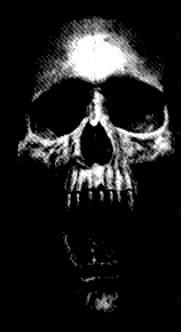Wicca Beliefs and Practices
 There are a wide variety of
beliefs and practices in modern day Wicca. However, despite the pluralism
and diversity, distinct principles derived from Gardnerian Wicca are common
to most modern witches. Some of these beliefs are as follows:
There are a wide variety of
beliefs and practices in modern day Wicca. However, despite the pluralism
and diversity, distinct principles derived from Gardnerian Wicca are common
to most modern witches. Some of these beliefs are as follows:
- Everyone has the divine (or goddess) within.
- One should develop natural gifts for divination or occult magic (often spelled 'magick' by occultists.)
- Divine forces or nature spirits are invoked in rituals.
- The Goddess, as either a symbol or a real entity, is the focus of worship.
- Nature and the earth are sacred manifestations of the Goddess.
- Everyone has his or her own spiritual path to follow.
- Rituals and celebrations are linked to the seasons and moon phases.
- Meditation, visualization, invocation (calling on forces or gods/goddesses), chanting, burning candles and special rituals trigger a sense of the mystical, thus reinforcing the core belief system.
These beliefs will often be mixed with a combination of mystical traditions, Celtic or Norse paganism, Greek and Roman goddess worship, ancient Egyptian spirituality, Eastern Shamanism, or even Native American spiritual practices depending on the group. All of these groups revere nature, support peace, and believe society cannot be at peace if we are out of harmony with nature or are mistreating Mother Earth (also known as Gaia, the name of a pagan goddess given to Earth). This aspect of Wicca is very similar to the New Age Religion supported by the United Nations and many of it's members, NGO's and leaders. Divination techniques such as tarot cards, astrology, runes, the I Ching (from Chinese Taoism), clairvoyant or psychic readings, candle magick and other occult practices are not only common but encouraged by most groups.
Similar to Hinduism, the serpent is believed by Wiccans to be a symbol of eternal life and female spiritual awakening or power. In Hinduism, yoga and meditation results in enlightenment from awakening the Kundalini, or power known as the serpent power believed to be coiled at the base of the spine. Other symbols used in witchcraft are:
- Pentagram and pentacle - A 5-pointed star used for protection, spells, conjuring, etc.
-
 The Ankh - Egyptian
cross-like symbol with a loop at the top associated with the worship of
Isis.
The Ankh - Egyptian
cross-like symbol with a loop at the top associated with the worship of
Isis. - The Crescent Moon - A symbol of the Goddess also used in Islam.
- Crystals - believed to contain healing and spiritual properties. Crystals are also used by many other new age cults.
One hurdle that will have to be crossed in witnessing to a person involved in Wicca is their lack of belief in a need for forgiveness or salvation. To the witch, there is no sin therefore no need for forgiveness. There is no need for salvation, as there is nothing to be saved from. The main tenet of Wicca is the "Wiccan Rede" which states "And it harm none, do as ye will". Basically, as long as you don't hurt anyone, anything goes. Of course, views of what actually causes harm vary from person to person. Most also believe that whatever you do will come back to you three-fold, so it pays to be careful. Some, however, believe that it is sometimes acceptable to cause harm as long as you are willing to accept the karmic consequence.
Views of an afterlife vary widely among groups. Witches do not believe in a heaven or hell and will usually espouse the concept of karma and endless reincarnation. Backed up by "memories" of "past lives" they insist the idea of living only once is ridiculous. Others believe in reincarnation until enlightenment, or endless rebirth until such time as the person is enlightened enough to pass on to some other existence. Again, what makes a person enlightened varies from person to person. Still others will openly admit they have no idea what will happen after death and say the will find out when they get there.
As you can see, the beliefs of Wiccans fit very well into the humanist religion that has become so widespread in modern society. As with other humanist religions everything goes as long as it doesn't oppose their claim to being god/goddess or hold them accountable to a higher power. It is this point that makes Christianity the only faith they will bend the "anything goes" rule for. To them it is intolerant to believe in an absolute truth and they will often take it as an insult to be told there is evil in the world and we all sin. This is one of the biggest obstacles to sharing your faith with Wiccans and other humanist groups.

